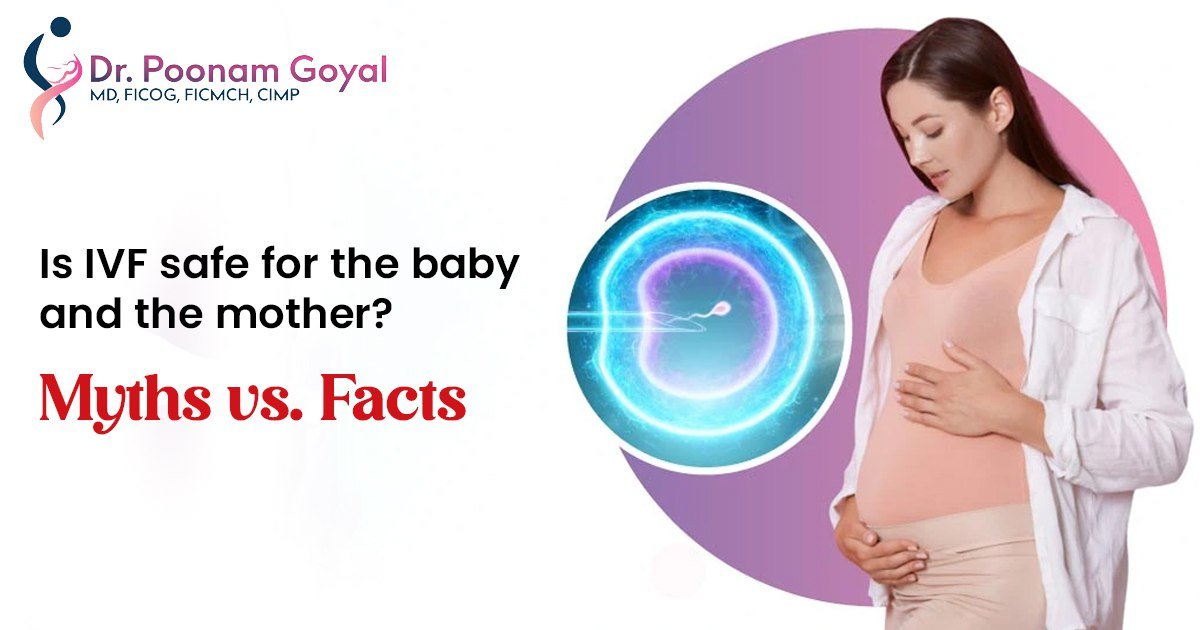
In recent years, In Vitro Fertilization (IVF) has become one of the most sought-after fertility treatments in India. With increasing awareness and advancements in medical science, more couples are choosing IVF to overcome infertility and start their families. Yet, despite its growing popularity, many people still have doubts and fears, particularly about the safety of IVF for both mother and child.
This blog aims to bust the common myths and present clear facts about the safety of IVF, helping you make informed decisions for your fertility journey.
Fact: IVF is a well-established and safe procedure. In many cases babies born through IVF are as healthy and safe as those conceived naturally. Although early studies raised concerns about birth defects or developmental delays, recent large-scale research shows no significant differences. In fact, IVF procedures today use strict screening, quality control, and embryo monitoring to ensure safety at every step.
Fact: This used to be true when multiple embryos were transferred at once. However, with modern techniques like Single Embryo Transfer (SET), the risk of twins or triplets is significantly reduced. Fertility specialists now aim for a healthy singleton pregnancy, just like in natural conception.
Fact: IVF does involve hormonal injections and egg retrieval, but complications are rare when the process is monitored by experienced professionals. Temporary side effects like bloating or mild discomfort are normal, and serious risks are extremely uncommon. The key is choosing a trusted fertility expert and clinic that follows international safety protocols.
Fact: Premature births or low birth weight can happen in any pregnancy, regardless of the conception method. IVF babies have slightly higher chances of such outcomes, mostly due to maternal age or underlying health issues, not because of IVF itself. Regular prenatal care can manage and reduce these risks effectively.
Fact: IVF is largely non-surgical. Egg retrieval is a short, outpatient procedure, and embryo transfer feels similar to a routine gynecological test. Most women resume their normal activities within a day or two. Extended bed rest is no longer a medical necessity unless there are other health concerns.
When all these factors are addressed under expert supervision, IVF is as safe and effective as any modern medical procedure.
Many couples worry not just about physical health but also about emotional well-being. IVF can be emotionally challenging. That's why clinics now offer counseling, support groups, and mental health support throughout the treatment. IVF success rates also depends on your stress and anxiety management.
If you are considering IVF, the best step is to consult a specialist who can explain the process transparently. One such trusted fertility expert is Dr. Poonam Goyal, known for her compassionate care and clinical expertise in guiding couples through successful IVF journeys.
IVF has helped millions of couples across the world experience the joy of parenthood. While it's normal to have questions and concerns, it’s equally important to separate myths from facts. With today’s technology, personalized care, and the right medical support, IVF is safe, successful, and empowering for both mother and baby. If you have been holding back due to fear or misinformation, now is the time to explore the truth. Your dream of starting a family may be closer than you think.